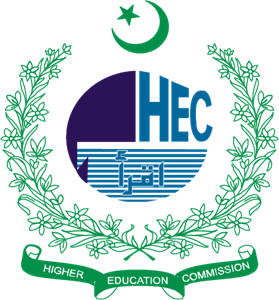Educational Benefits of Study Tours for the Students of Architecture in Karachi- A Case Study
DOI:
https://doi.org/10.33317/ssurj.237Keywords:
Study tours, Learning experience, Pleasure, Explore, Practical tacticAbstract
Among educational elements, the main element is study tours that are considered as a crucial instrument for learning. These tours are not only a source of providing valuable educational opportunities to the students but also give them pleasure. They benefit the entire life of students in different ways. The main focus of this research is to know how study tours are beneficial for students of architecture. This study explores the need and importance of study tours that add the learning experience throughout the life of students at the university level and in practical life.
For collecting data, a qualitative research method is used. The study carried out by taking the architectural students of Sir Syed University of Engineering and Technology Karachi on study tours, because of being a part of the faculty of the Architecture department of this university. The research tool was a questionnaire that was filled online by the students who joined the tours, collected data was analyzed by a simple percentage method.
The findings indicated that the majority of respondents get pleasure and knowledge from study tours. The tours provide education to students to explore things personally in an eloquent way. They not only boost collaboration among teachers and students but also support to cope with teaching problems that occurred in the classrooms.
The study has demonstrated that study tours are essential in order to give practical tactics for the curriculum and are helpful in enhancing the learning experience and understanding of the students. Tours bring enjoyment and escapade to learning and trained students for getting success in the hardships of life.
References
Liu, E., Carta, S., & Sopeoglou, E. (2018). Study trip as means of expanded learning. Information, Communication & Society, 21(9), 1293-1304.
Polishetty, A., Chou, L., Patil, A., & Littlefair, G. Student learning experiences during an international study tour. In Proc. 4th IETEC Conf (pp. 635-642).
Pattacini, L. (2018). Experiential Learning: the field study trip, a student-centred curriculum. Compass: Journal of Learning and Teaching, 11(2).
Hains-Wesson, R., & Ji, K. (2020). Students’ perceptions of an interdisciplinary global study tour: uncovering inexplicit employability skills. Higher Education Research & Development, 39(4), 657-671.
Behrendt, M., & Franklin, T. (2014). A review of research on school field trips and their value in education. International Journal of Environmental and Science Education, 9(3), 235-245.
Hudak, P. E. (2003). Campus field exercises for introductory geoscience courses. Journal of Geography, 102(5), 220-225.
Hoisington, C., Sableski, N., & DeCosta, I. (2010). A Walk in the woods. Science and Children, 48(2), 27-31.
Farmer J., Knapp D., & Benton, G.M. (2007). An elementary school environmental education field trip: Long-term effects on ecological and environmental knowledge and attitude development. The Journal of Environmental Education, 38(3), 33-41.
Nabors, M. L., Edwards, L. C., & Murray, R. K. (2009). Making the case for field trips: What research tells us and what site coordinators have to say. Education, 129(4).
Walsh, C., Larsen, C., & Parry, D. (2014). Building a community of learning through early residential fieldwork. Journal of Geography in Higher Education, 38(3), 373-382.
Sims, R. (2002). Teaching business ethics for effective learning. Wesport, Connecticut: Quorum Books. Page 79. Retrieved from https://www.amazon.com/Teaching-Business-Ethics-Effective-Learning/dp/1567204821
Nabors, M. L., Edwards, L. C., & Murray, R. K. (2009). Making the case for field trips: What research tells us and what site coordinators have to say. Education, 129(4).
L. Kandel, "Excursions, School", in Paul Monroe, A Cyclopedia of Education. Macmillan Company, 1910, Vol. II
Pattacini, L. (2018). Experiential Learning: the field study trip, a student-centred curriculum. Compass: Journal of Learning and Teaching, 11(2).
Tal, R. T. (2004). Community-based environmental education—a case study of teacher–Parent collaboration. Environmental Education Research, 10, 523–543.
Tal, T., & Morag, O. (2009). Reflective Practice as a Means for Preparing to Teach Outdoors in an Ecological Garden. Journal of Science Teacher Education, 20(3), 245-262.
Variano, E., & Taylor, K. (2006). Inquiry in limnology lessons. The Science Teacher 73(6), 36-39.
Hein, C., & Van Dooren, E. (2020). Teaching history for design at TU Delft: exploring types of student learning and perceived relevance of history for the architecture profession. International Journal of Technology and Design Education, 30(5), 849-865.
Krepel, W. J., & Durral, C. R. (1981). Field trips: A guideline for planning and conducting educational experiences. Washington, DC: National Science Teachers Association.
Tal, T., & Morag, O. (2009). Reflective Practice as a Means for Preparing to Teach Outdoors in an Ecological Garden. Journal of Science Teacher Education, 20(3), 245-262.
Lei, S. A. (2010). Field trips in college biology and ecology courses: Revisiting benefits and drawbacks. Journal of Instructional Psychology, 37(1), 42-48.
Scarce, R. (1997). Field trips as short-term experiential education. Teaching Sociology, 25, 219–226.
National Research Council (2009). Learning science in informal environments: People, places, and pursuits. Washington, DC: The National Academies Press.
Sampath, K. Panneerselvam. A, & Santhanam.S. (2006). Introduction to educational Technology. Sterling publishers Pvt Ltd. Retrieved from http://books.rediff.com/book/introduction-to-educational-technology/9788120731394.
Aggarwal, J. C. (2002). Principles, Methods & Techniques of Teaching (2nd ed.). Vikas Publishing House Pvt. Ltd., New Delhi. Retrieved from http://shodhganga.inflibnet.ac.in/bitstream/10603/17923/11/11_references.pdf.
Goh, E. (2011). The Value and Benefits of Fieldtours in Tourism and Hospitality Education. Blue Mountains International Hotel Management School, Australia. Retrieved from https://files.eric.ed.gov/fulltext/EJ1134339.pdf.
Myers, B. and Jones, L. (2009). Effective Use of Field Tours in Educational Programming: A Three Stage Approach. University of Florida. Retrieved from http://edis.ifas.ufl.edu/wc054.
Goh, E. (2011). The Value and Benefits of Fieldtours in Tourism and Hospitality Education. Blue Mountains International Hotel Management School, Australia. Retrieved from https://files.eric.ed.gov/fulltext/EJ1134339.pdf.
Shakil, A., Faizi, W. and Hafeez, S. (2011). The need and importance of field tours at higher level in karachi, pakistan. [online] Retrieved from http://www.hrmars.com/admin/pics/45.pdf.
Downloads
Published
How to Cite
Issue
Section
License
Copyright (c) 2021 Humaira Nazir (Author)

This work is licensed under a Creative Commons Attribution 4.0 International License.









